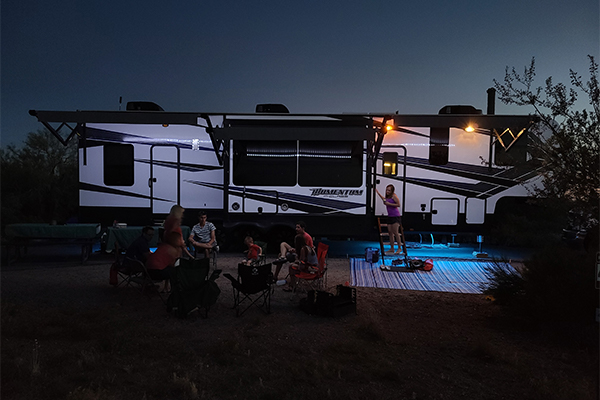Motorhome Sites: The Traveling RV's Guide to Finding the Best Camping Spots
The RV lifestyle is not for everyone. But for those who can't imagine living without the open road, an RV offers an affordable way to travel the country. The only downside of full-time RVer life is that there are still some places you can't visit. Getting "full hookups" at a campground is sometimes hard to find, especially if you're looking for something free. That's why it's important to know which types of camping sites are available and what to look for when choosing one. This guide will help you make the best decision on where your next RV stop or motorhome site will be!

Types of RV Camping Sites
The main type of RV camping site is what's called a "turn-in." When you stop your motorhome at a site and it is officially your new home for the next few days or even weeks, it's called a "turn-in." There are two types of these: "campsites" and "turn-ins." Campsites A campsite is a spot where you park your RV and you can tie up the tow vehicle, so that when you drive off you aren't letting a lot of other cars or trucks on your campsite. There are two things that you need to know when choosing a campsite: A campsite with full hookups is usually called a "resort site" or "self-contained site" in many cases. A campsite without full hookups is called an "overflow site" in many cases. A campsite with full hookups is considered to be a "resort site" or "self-contained site" in most cases.
Full Hookups vs. Free Sites
Full hookups and free camping sites are both options for RVers, but they have major differences in terms of amenities and conditions. While the majority of free RV sites allow overnight stays for free, some have no water, no sewer, no electricity, no dump station, and they often charge a fee to moor your RV. A free site is often a public road that is otherwise available for vehicle use. Full-time RVers use them to stop in for the night and sleep comfortably in their RV, then do their own thing in the morning. On these sites, campers can get up and go early, but they can’t stay overnight, and most are located on dirt or gravel roads that make driving a challenge. The hassle factor of a free campsite is one of the major factors in choosing a spot.
Drive-up Sites
There are a few different types of "drive-up" campgrounds, including primitive, C-class, and higher-class sites. I'm talking full hookups, water, and electricity! Depending on your plans, either camping in the trees, a municipal park, or even alongside the road, these sites are often just a short walk away. In some states, however, camping in a "drive-up" site with electricity may require a special use permit, so always check the rules in advance. If you are only planning on camping for one night, C-class sites are the best bet. If you want to go the rest of the way, then drive-up sites may be too limiting. Some areas of the country allow or even encourage campers to stay in a roadside park, so look up your area to see if that's the best option for you.
What to Consider When Choosing a Motorhome Site
Camping sites for motorhomes are generally a little bit different than those for full-timers. A little extra flexibility is usually available at a campground for a motorhome site, while it’s harder for full-timers. If you plan on staying in a campground for multiple nights, or even the whole season, you’ll want to make sure there’s some wiggle room. As such, campgrounds typically provide slightly more freedom for RVers. So what to consider when choosing a motorhome site? You’ll want to look for a campground with hook-ups, close to services, with wildlife, a beautiful environment, and plenty of activities for the whole family. The best site won’t be too crowded or populated, either – you’ll want to find somewhere that’s already unoccupied.
Conclusion
There's no sense comparing an RV site to a tent site, so this is not an exhaustive guide to RV camping sites. However, it's a good starting point if you want to travel through Canada to find what works for you. If you're considering the road, this article is a great starting point, too!